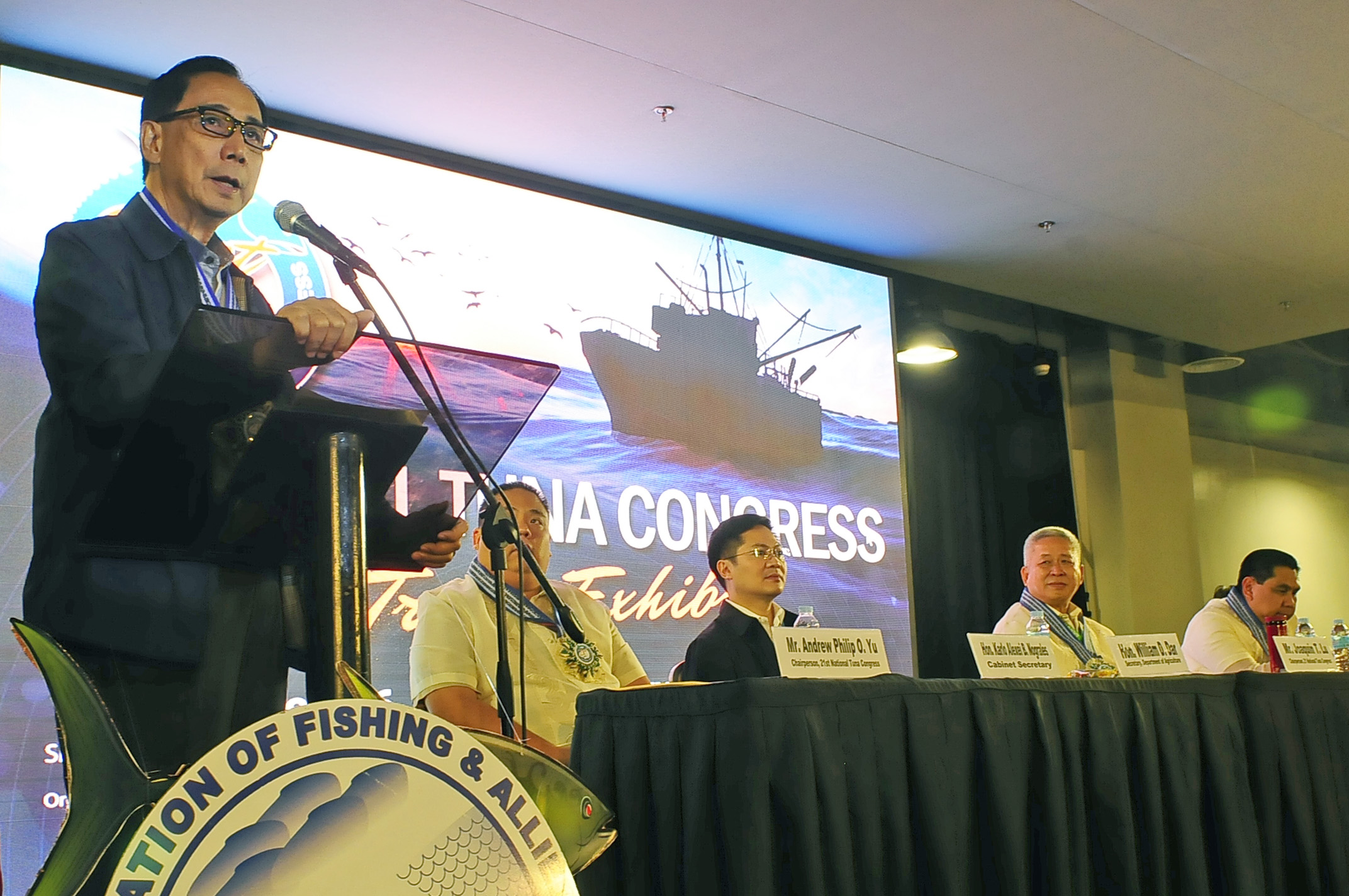
“Refleeting is the way forward and the best option so that the country’s commercial fishing sector can compete with the rest of the world,” said Agriculture Secretary William D. Dar as he laid down specific strategies on how the tuna industry can further elevate its game, during the 21st National Tuna Congress and Trade Exhibit, September 5, 2019, in General Santos City.
“Technologies and innovations will propel the sector to a higher level. If you don’t use the most appropriate and sustainable technologies of today, the level of productivity that we so desire, will be far-fetched,” Dar said.
In 2018, the total volume of fisheries production was estimated at 4.35 million metric tons (MMT), 0.92 percent higher than its previous year’s level of 4.31 MMT.
In particular, the volume of yellowfin tuna production totalled 94,180 MT, roughly 12 percent less than the total output of 106,920 thousand MT in 2017.
“Big fleets equipped with modern processing and canning facilities can provide a great advantage for the Philippine fishing industry,” said Dar who marked his one-month in office on that day.
“Fishery is such a high-value sector that it is imperative we put our hearts and minds together to nurture and further the development of the tuna industry,” said Dar.
Hence, he directed the Bureau of Fisheries and Aquatic Resources to work with banking institutions like Land Bank of the Philippines and Development Bank of the Philippines to explore lending windows for refleeting of current commercial fishing vessels in support to the tuna industry.
Aside from refleeting, Dar enumerated other strategies to sustain the tuna industry. These include: 1) fishery industrialization; 2) promotion of fishery exports; 3) consolidation of small- and medium-sized fish farms; 4) infrastructure development; 5) higher budget and investment for Philippine fisheries; 6) legislative support; and 7) commercial fishery roadmap development.
Despite the hurdles faced by the fishing industry, Dar said that the Philippines remains as one of the top tuna producers in the world and one of the largest exporters of processed tuna.
Currently, the Philippines is the leading tuna exporter in the European Union, mainly Germany and UK. About 38 percent of the total national marine tuna lands in South Cotabato of which General Santos, the “Tuna Capital of the Philippines” is located. ### (Rita T. dela Cruz)













